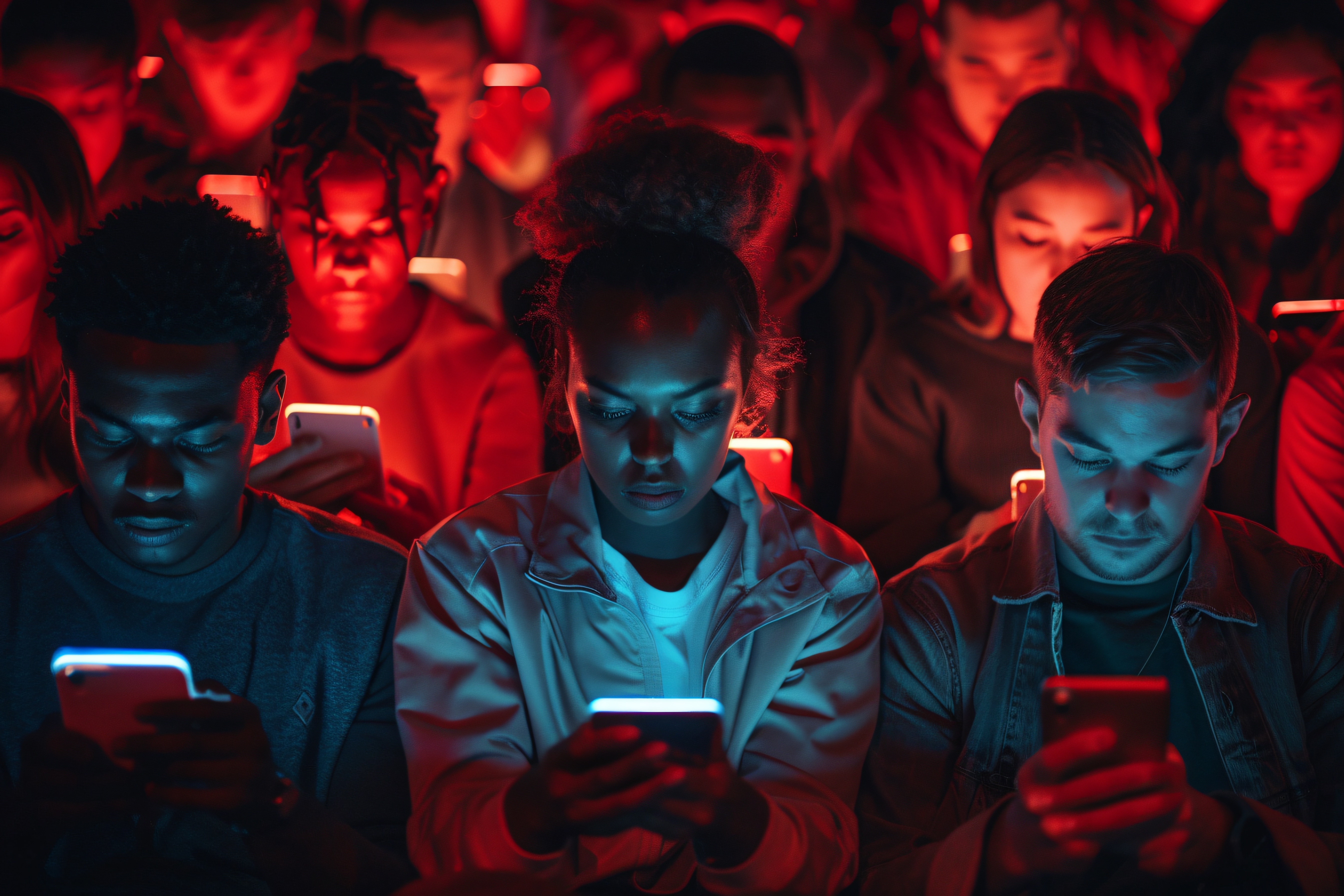Beware! The Risks of Oversharing on Social Media
Read Time 7 mins | 14 Mar 2025 | Written by: Nur Rachmi Latifa

Social media has become an integral part of daily life, allowing us to share moments, opinions, and even personal information instantly. However, being too open on these platforms can pose serious risks to your privacy and data security. From identity theft and stalking threats to data misuse by third parties, all of these dangers can arise from just one uncontrolled post. Given the significant impact, it is crucial to be more aware and mindful of what we share on social media. This article will thoroughly explore the risks of oversharing and provide practical tips to protect your privacy online.
Privacy on Social Media: What You Need to Know
Social media privacy refers to the control individuals have over the personal information they share on digital platforms. In this context, privacy is not just about hiding data from strangers but also ensuring that this information is not misused by others—whether for commercial purposes or malicious intent. Social media platforms are often designed to encourage users to share as much as possible, which can unknowingly expose personal information that should remain private.
One of the most frequently shared pieces of information, often without realizing it, is personal data such as full names, addresses, phone numbers, and birthdates. This information is usually voluntarily uploaded through user profiles or daily posts. Additionally, location data is another commonly exposed detail, especially through check-in features or location tags on photos and videos. Without realizing it, this can reveal details about your habits or routines, which could be exploited for harmful purposes such as theft or stalking.
Beyond personal data and location, seemingly trivial daily activities—such as work schedules, vacation plans, and shopping habits—are often openly shared as well. This creates an opportunity for bad actors to track patterns or exploit such information. By understanding the types of information that are frequently exposed, social media users can be more mindful when using these platforms, thereby minimizing privacy risks. Being aware of what you share is the first step in protecting yourself in the digital world.
Read: Doxxing: What Is It and How to Avoid It?
The Risks of Oversharing on Social Media
Social media makes it easy to interact, share stories, and build new connections. However, behind all these benefits lies a significant threat that often goes unnoticed. Sharing too much information openly on social media can pose serious privacy risks, affecting your security, comfort, and even overall well-being. Here are some key risks you need to be aware of.
Security Threats
One of the biggest dangers of reckless social media use is the threat to personal data security. Your identity can be stolen if details such as your full name, birthdate, or address are too easily accessible. Cybercriminals can use this information to impersonate you for illegal activities, such as opening fraudulent bank accounts or signing contracts in your name. Additionally, there is a risk of cyberattacks, including phishing and hacking, where the information you share is exploited to craft highly targeted and deceptive attacks.
Misuse of Personal Information
The personal information you share on social media is also vulnerable to misuse. Without realizing it, your data can be used for targeted advertising, often without clear consent. Worse, this data can be sold to third parties or manipulated for specific agendas, such as data analysis or public opinion manipulation. This makes it crucial to protect your privacy on social media so that your personal data does not become a tool for others to profit from without your knowledge.
Privacy Intrusions
Oversharing can also lead to serious privacy intrusions. One common example is stalking, where someone can easily track your activities through your social media posts. Additionally, threats such as cyberbullying often arise when the information you share is used to attack or publicly humiliate you. These risks not only compromise your privacy but can also negatively impact your mental health.
Understanding these risks is the first step toward safer social media use. By managing the information you share wisely, you can protect your personal data while maintaining security and comfort in the digital world.
Common Mistakes That Endanger Your Privacy on Social Media
Many people see social media as a safe space to share their stories and daily activities. However, the way we use social media often creates opportunities for others to misuse our personal information. Some seemingly harmless mistakes can actually pose significant privacy risks. Understanding and avoiding these errors is the first step in protecting your data. Here are some habits you should avoid.
Sharing Your Location in Real-Time
One of the most common mistakes is sharing your location in real-time through check-ins, photo uploads, or location tags. For example, posting your location while on vacation or attending an event informs others about your whereabouts at that exact moment. This can be exploited for malicious purposes, such as burglaries when you're away from home. Additionally, frequently sharing your location can allow someone to track your daily routines, increasing both your physical and privacy risks.
Keeping Your Profile Public
Many social media users overlook the importance of adjusting their account privacy settings. Leaving your profile open to the public means that anyone can see the information you share, including photos, friend lists, and even contact details. This can be dangerous, as such data can be exploited for phishing, scams, or identity theft. To protect yourself, always review and customize your privacy settings so that only trusted people can access your posts and personal information.
Using Weak or Reused Passwords
Another frequently underestimated mistake is using weak passwords or reusing the same password across multiple social media accounts. Simple passwords like your birthdate or easy combinations such as "123456" are highly vulnerable to hacking attempts. Even worse, if you use the same password on multiple platforms, a data breach on one account can compromise all your other accounts. To enhance your security, use unique and strong passwords for each platform, and enable two-factor authentication (2FA) for an extra layer of protection.
By understanding and avoiding these mistakes, you can enjoy social media more safely without sacrificing your privacy. Remember, your personal data security depends on the steps you take to manage the information you share.
Practical Steps to Protect Your Privacy on Social Media
Social media has become an essential part of daily life, but careless usage can pose serious risks to your privacy. Fortunately, there are many practical steps you can take to safeguard your personal data and stay secure while interacting in the digital world. Here are some effective ways to protect your privacy on social media that you can start implementing right away.
Review and Adjust Your Privacy Settings
The first step in protecting your privacy is to review and adjust the privacy settings on each of your social media accounts. Most platforms provide options to control who can view your posts, friend lists, or profile information. Ensure that only people you trust have access to this data. If possible, set your account to "private" so that your posts are not visible to strangers. Regularly checking your privacy settings is also important, as platforms frequently update their policies and features.
Avoid Sharing Sensitive Information
As much as possible, avoid sharing personal or sensitive information, such as your phone number, home address, or bank details, on social media. This type of information can be exploited by malicious actors for various purposes, including fraud and identity theft. Remember, anything you share publicly on social media can be difficult to erase completely, so always think twice before posting.
Enable Two-Factor Authentication (2FA)
To enhance your account security, activate two-factor authentication (2FA). This feature adds an extra layer of security by requiring you to verify your identity with a code sent to your phone or email whenever a login attempt is made. With 2FA enabled, even if someone gets hold of your password, they won’t be able to access your account without the additional verification code. This is one of the most effective ways to protect your social media privacy from hacking attempts or unauthorized access.
Monitor Who Has Access to Your Account
Many users are unaware of who has access to their social media accounts. For instance, third-party apps linked to your account may have permissions to access certain data. Regularly check the list of connected apps or devices and revoke access for those you no longer use. Additionally, monitor your login activity to ensure that no unfamiliar devices or suspicious locations have accessed your account.
By following these tips, you can use social media more safely and wisely. Remember, protecting your privacy on social media is a personal responsibility. The more cautious you are in managing your personal information, the lower the risks you will face in the digital world.
Case Study: The Consequences of Oversharing on Social Media
One real example of the dangers of oversharing on social media was reported by CNN in May 2024, highlighting the serious risks to privacy and psychological development faced by children whose lives are shared online by their parents. In this case, many parents publicly documented their children's daily lives on social media, attracting millions of followers and generating significant income. However, behind this popularity, these children became increasingly vulnerable to exploitation, harassment, and psychological pressure due to excessive public exposure.
This case illustrates how being too open on social media can have severe consequences, especially when it involves children who are not yet capable of understanding the implications of such exposure. Information shared without proper restrictions creates opportunities for irresponsible individuals to misuse data or invade a child’s privacy. It underscores the importance of responsible content sharing—not only to protect children's privacy but also to ensure they grow up in an environment free from unnecessary external pressures.
Oversharing doesn’t just affect the person posting; it also impacts those who are featured in the content, particularly children. This serves as a reminder that social media usage should always be approached with caution and awareness of its long-term effects.
Read: Cyberbullying: A Real Threat in the Digital Generation Era
Conclusion
Oversharing on social media can lead to various risks, including identity theft, misuse of personal data, and privacy breaches such as stalking and cyberbullying. Real-life cases demonstrate how excessive sharing can have serious consequences on security, comfort, and even psychological well-being, especially for children. Therefore, it is crucial to be more mindful of the information we share online. By prioritizing privacy, you not only protect your data but also ensure a safer and more secure experience in the digital world. Be a smart social media user and make privacy a top priority as a way to safeguard yourself.

